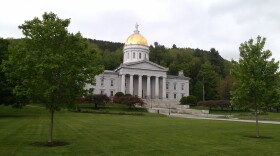The Vermont Legislature passed an Affordable Heat Act just before the end of its session in May and the Public Utility Commission is now working to create a Clean Heat Standard mandated by the bill.
A coalition of advocacy groups held a recent webinar to look at the status of policymaking and the future of the emissions reductions required by the legislation.
The Vermont Chapter of the Sierra Club, Vermont Natural Resources Council and Vermont Public Interest Research Group hosted two members of the Vermont Climate Council for an overview of the legislation and a discussion of policy recommendations for the Clean Heat Standard.
Regulatory Assistance Project Principal Richard Cowart noted that the World Meteorological Organization recently warned that there is a 98 percent likelihood that the next 5-year period will be the warmest ever recorded, leading to numerous climate emergencies.
“Fossil heat is one of the toughest challenges and in Vermont it's the largest source of emissions from any sector," Cowert said. "It was in 2020. And it's right up there with transportation going forward, 36% of our emissions today. By the Global Warming Solutions Act requirements large reductions are required. Heating is not something that can be addressed at the other end of the pipe. Changes have to happen in people's homes and in their businesses. So to make the thermal transition are hundreds of thousands of kitchen table decisions and investment decisions by individual homeowners.”
Vermont Energy Action Network Executive Director Jared Duval noted that the Climate Council is required to identify and recommend policy options to meet the legal obligations under the Global Warming Solutions Act.
“It is also about helping Vermonters get off of the fossil rollercoaster," said Duval. "On average fossil heating especially fuel oil, propane and kerosene are incredibly high cost and price volatile ways to heat homes. One of the things that this act is designed to do is help more Vermonters transition to lower cost and more price stable heating options. This really was designed as a policy to do multiple things at once: reducing emissions while reducing energy costs and helping folks get off of this fossil fuel price rollercoaster.”
Duval explained that the Clean Heat Standard mandates that importers of fossil heating fuels make cleaner options available to Vermonters.
“It requires them to deliver or cause to be delivered emissions reducing activities," said Duval. "That can either be through weatherization, it can be through heat pump installations, heat pump water heaters. There's a whole range of things that can help reduce emissions in the heating fuel sector that are that are eligible. But the obligation is on the importers of fossil heating fuels for ensuring, either directly or indirectly, that cleaner heat solutions are made available to Vermonters.”
Questions from the chat were read by the webinar’s moderator, Northeast Energy Efficiency Partnerships Senior Manager Erin Cosgrove.
“In addition to a performance standard or a possible carbon tax," read Cosgrove, "Are there any conversations about incentivizing overall consumption reduction or any other policies under consideration?”
Duvall replied that the Climate Council’s Cross Sector Mitigation committee has considered a number of options to meet emissions reductions.
“A number of us from the start were skeptical of a carbon tax," Duval said. "Carbon taxes are generally good at raising revenue. As traditionally designed, they are not good at providing certainty around emissions reduction. There are other options that I think are similar and that could have some of those same benefits. You know, we discussed a cap and invest program. Performance standards and cap and invest programs are really the only ones that we have found that can, with confidence, deliver the scale and pace of emissions reductions we need and want while doing so equitably in reducing energy costs for the long term.”
On November 20th the Vermont Energy Action Network will issue its Emissions, Energy, Equity and Economy Progress Report assessing how emissions and energy policies are impacting the state’s economy and equity.












